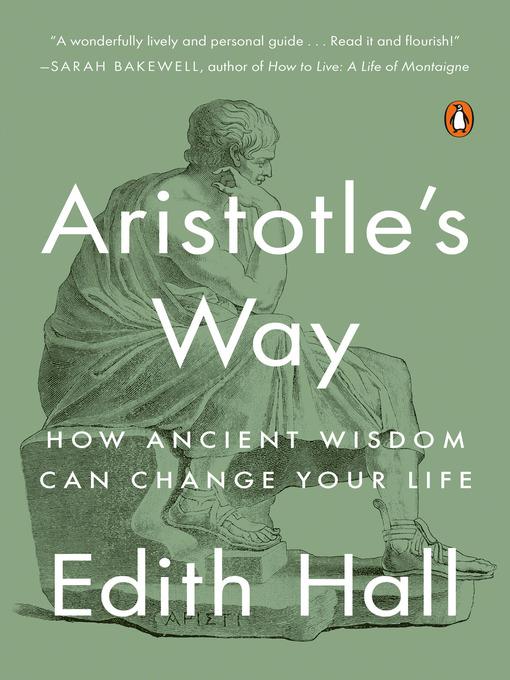
Aristotle's Way
How Ancient Wisdom Can Change Your Life
کتاب های مرتبط
- اطلاعات
- نقد و بررسی
- دیدگاه کاربران
نقد و بررسی

November 15, 2018
Call no one happy until after he is dead, goes the old Greek adage. Hall (Classics/King's Coll., London; Introducing the Ancient Greeks: From Bronze Age Seafarers to Navigators of the Western Mind, 2013, etc.) takes a rosier view, drawing on Aristotelean philosophy to cheer us up in grim times.By the author's account, Aristotle was the first philosopher to consider the question of happiness subjectively and, from that consideration, to offer "a sophisticated, humane program for becoming a happy person." The active quality of that clause should be kept in mind, for the process of happiness is ongoing and involves effort on the part of the person who wishes to be happy, requiring that one work on controlling the baser qualities and highlighting the better ones. In the Nicomachean Ethics, Hall points out in her nontechnical but deeply grounded discussion, Aristotle writes that happiness "comes as the result of a goodness, along with a learning process, and effort." That a person can "think herself into happiness" works on a principle that is profoundly democratic: Anyone can do it, and after doing so, happiness becomes a matter of "self-conscious habit" and resolution. Hall charts the evolution of the idea of happiness as the exercise of virtue into the thinking of Thomas Jefferson, who was quite deliberate in the use of the term "happiness" as the goal of an inalienable right. What works against happiness? There are several agents, among them weakness of will and "sheer bad luck," though recognizing that this bad luck is (usually) beyond one's control is key to creating a better mood. Other aspects of happiness, as Hall's lucid account demonstrates, include generosity, ongoing education and appreciation of the arts, the study of history and literature (as a vehicle for understanding, or, as she puts it, "a gymnasium for developing our ethical muscles"), and the application of one's intellect to real-world problems such as landing a job.Can happiness come from virtue? This lively book makes a good argument in the affirmative.
COPYRIGHT(2018) Kirkus Reviews, ALL RIGHTS RESERVED.

Perhaps because of its late medieval associations, Aristotle's work is often consigned to a prescientific age best forgotten. Hall (classics, King's Coll., London; Introducing the Ancient Greeks) corrects this impression by focusing on Aristotle's exceptionally practical advice on living life well. The author's aim is to apply Aristotle's observations to the everyday business of living and particularly the pursuit of happiness. Hall starts by outlining just what Aristotle meant by happiness and why that state--so conceived--is worth the pursuit. She then moves through those areas of Aristotle's philosophy that support the search, such as his views on deliberation, the development of virtues, the cultivation of friendships, the maintenance of high-functioning societies, and understanding the limits of life. Her ability to link Aristotle's experience to her own personal observations make these applications clear. Professionals may dispute some of the arguments Hall uses to blunt some of Aristotle's anachronistic views, such as those of politics, slavery, and the status of women, but none of this ultimately detracts from a brilliant discussion. VERDICT More a practical guide than an introduction to philosophy, this work communicates what the ultimate purpose of philosophy is: living a full life.--James Wetherbee, Wingate Univ. Libs., NC
Copyright 1 Library Journal, LLC Used with permission.
























دیدگاه کاربران